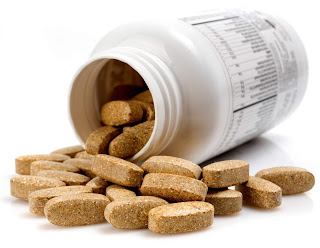Going to the supplement aisle at your local health store can be a big task to choose. In order to preempt your desperate real-time shopping questions for Dr Google, here's a little supplemental guide on the gold star rated vitamins and minerals that you need.
Of course, this roadmap is just a basic guide to supplements. They are used for different reasons and differ from person to person. Check with your doctor for more personalized guidance. You should call your doctor before adding any supplements in your diet.
Let's start this guide:
1. Multivitamins
Multivitamins are a great form of health 'assurance' because you are giving your body the essential vitamins, minerals , and antioxidants that it needs for optimal health.
Food is the ideal source of those nutrients, but there’s no way to know for sure that you’re consistently fueling your body with everything it needs. In fact, studies show that you can eat a healthy diet and still be on average about 57% short of crucial nutrients!
Turns out Mom was right when she told you to take your vitamins…
2. Omega-3s
This supplement is near and dear to my heart! Omega-3s helped my uncle survive a traumatic brain injury from a hit-and-run accident, and these healthy fats continue to be a big part of his recovery.
That’s because omega-3s protect your brain, as well as helping heal brain trauma, boosting your mood, and improving overall brain function.
It’s been said that inflammation is at the root of all disease, and omega-3 fatty acids are a powerful ally in the fight. They’ve been proven to lower inflammation, which can in turn help alleviate chronic pain, arthritis, asthma, autoimmune disease, and even fight cancer!
Struggling with high cholesterol? It’s omega-3s to the rescue! This daily essential can help lower harmful triglycerides and LDL and increase levels of HDL, the good cholesterol that keeps your arteries clean.
So many reasons to be sure you add omega-3s to your daily supplements!
3. Probiotics
The living organisms in your gut (also known as your gut microbiome) are essential – they’re your first line of defense against inflammation and infection.
The key to keeping your gut healthy is to increase the amount of healthy bacteria, while lowering the harmful ones. That’s where probiotics can help!
The healthy bacteria from probiotics protect you from stomach upset, food sensitivities, vitamin deficiencies, allergies, and autoimmune disease. These helpful flora also eliminate toxins and dispose of potentially harmful waste.
Another important reason to keep the microbiome healthy is that the gut flora affects the chemicals that determine your mood, appetite, sleep quality, and even your sex drive!
You know your gut is in trouble if you have leaky gut, gas and bloating, joint pain, fatigue, headaches, or trouble losing weight or keeping it off.
If you’re constantly fighting infections, taking antibiotics, or under lots of stress (and who isn’t!), taking a high-quality, daily probiotic will protect your immune system and heal your gut, while keeping you well-rested, frisky, and happy!
4. Vitamin D
Vitamin D deficiency is super common, so much so that it’s now considered an epidemic associated with several serious diseases.
Although called a vitamin, vitamin D is actually a hormone! It has an impressive list of important functions in your body, including keeping your bones and teeth healthy and strong, boosting your immune system to fight infection and autoimmune issues, protecting your heart, and supporting muscle function.
Research also shows that vitamin D can even help improve the symptoms of depression and may also boost weight loss by improving your mood and controlling your appetite.
Although 20 unprotected minutes under natural sunlight encourages your body to make vitamin D, many of us don’t get enough, especially in the winter. And that deficiency during colder months can negatively affect your health all year round!
If you live in a seasonal climate or a desk job keeps you from getting enough time in the sun, supplementing with vitamin D can make a huge difference to your overall health. (Remember, sun exposure while you’re wearing sunscreen won’t help you produce more vitamin D.)
If you’re experiencing symptoms of vitamin D deficiency like fatigue, frequent viral illness and infections, aches and pains, or bone and muscle weakness, it’s time to visit your doctor to get tested and start supplementing!
This is just a guidance of short supplements that should be taken on daily basis.
Thank you for reading this post till end. For more content on health and fitness feel free to explore our site Easy Pricks.












0 comments:
Post a Comment
Please do not add any spam link in the comment box